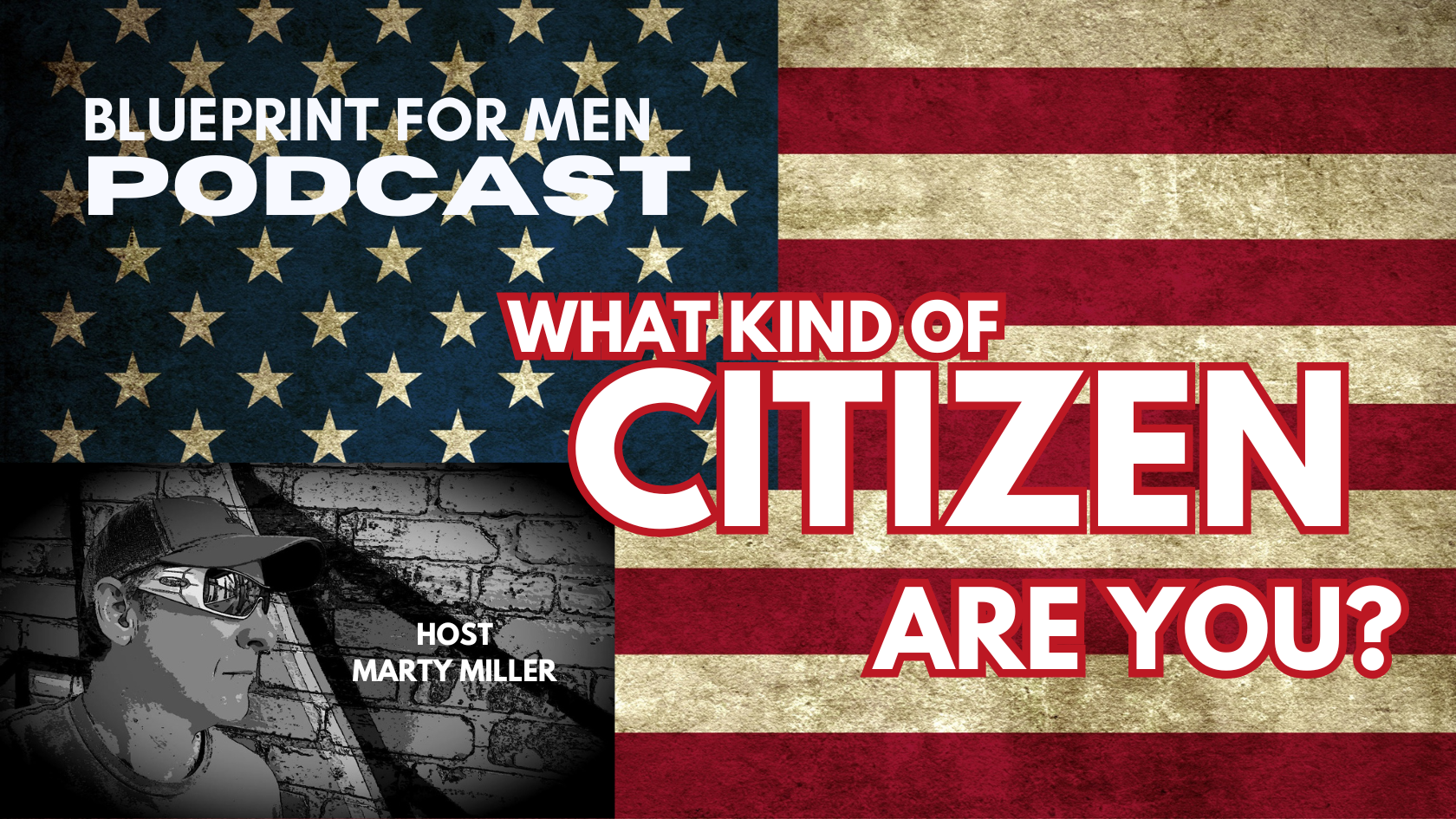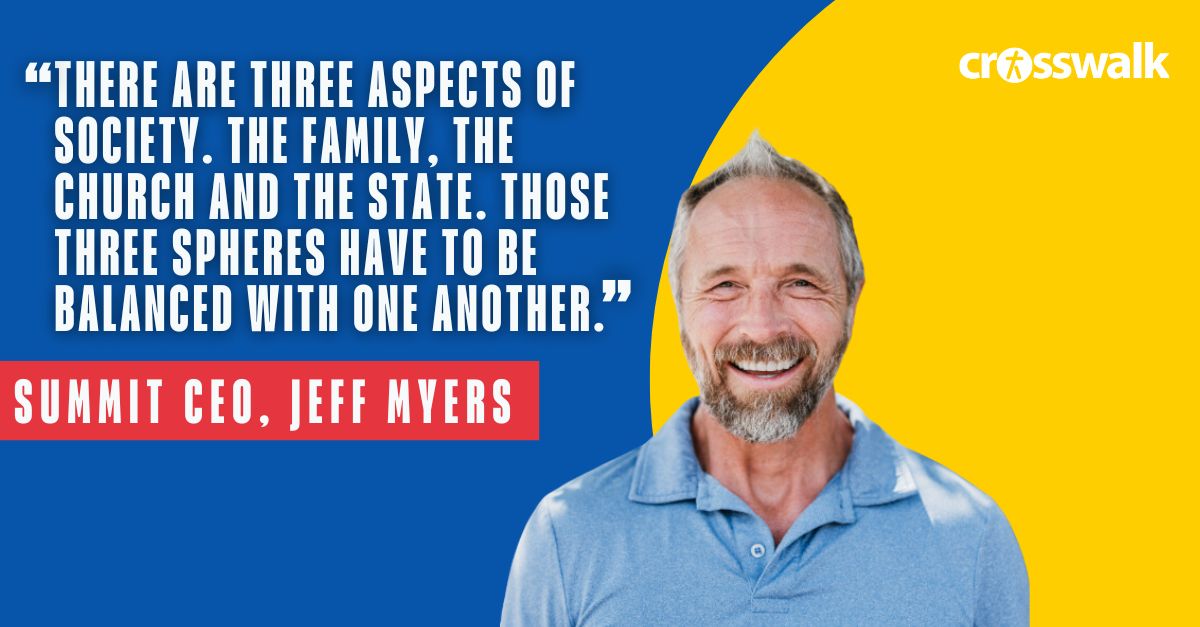
Gentlemen,
For most of us, voting for a presidential candidate is a bit of a dilemma. When you have a choice, but neither choice is desirable, what should you do? How would Jesus vote? Or, more provocatively, would Jesus vote?
With the U.S. Presidential election just a few days away I felt it would be appropriate to present some ideas about our civic responsibility to vote, what character traits a candidate should exhibit, and more importantly the character traits of a Christian citizen.
Here’s the lineup for this week…
Educate
- Blog – How Would Jesus Vote?
- Podcast – What Kind of Citizen are You?
- Download – The Godly Citizen Checklist
Equip
- Free Video Series – Should Christians Avoid Politics?
Engage
- Join Helping Hands – Be a Good Citizen
Gentlemen, I sincerely believe that if you follow this EDUCATE-EQUIP-ENGAGE sequence every week your life will change in dramatic ways. If you are blessed by this ministry and this weekly resource share it freely with other men. Together let’s build stronger men for this world and the world to come!
Here’s to Building Better Men,
Marty Miller
Blueprint for Men
Founder | President

How Would Jesus Vote?
The question of whether Jesus would vote or what he would say about selecting government leaders is open to interpretation, especially since the Bible does not directly address voting or democratic government. However, several biblical principles can guide thinking about leadership and civic responsibility, helping Christians reflect on what it means to select leaders according to Jesus’ teachings.
Biblical Principles on Leadership and Civic Responsibility
1. Engagement in Civic Responsibilities
- Mark 12:17: “Render to Caesar the things that are Caesar’s, and to God the things that are God’s.”
- Jesus recognizes the importance of fulfilling civic responsibilities and respecting governing authorities, suggesting a balanced approach between participation in society and devotion to God.
- REMINDER: As a good citizen we should have a basic knowledge of how our government works. To review how the US government is structured with it’s checks and balances refer to the Wikipedia webpage here.
2. Prioritizing Justice, Mercy, and Humility
- Micah 6:8: “He has shown you, O mortal, what is good. And what does the Lord require of you? To act justly and to love mercy and to walk humbly with your God.”
- This verse emphasizes qualities God values—justice, mercy, and humility—which may serve as a foundation for choosing leaders who embody these principles.
- Proverbs 31:8-9: “Speak up for those who cannot speak for themselves, for the rights of all who are destitute. Speak up and judge fairly; defend the rights of the poor and needy.”
- Supporting leaders who protect the vulnerable and judge fairly is consistent with biblical values, underscoring compassion and justice.
3. Servant Leadership and Humility
- Matthew 20:26-28: “Whoever wants to become great among you must be your servant, and whoever wants to be first must be your slave—just as the Son of Man did not come to be served, but to serve.”
- Jesus teaches that true leadership involves serving others selflessly. Voters might consider candidates who display humility and a commitment to public service.
- John 13:14-15: “Now that I, your Lord and Teacher, have washed your feet, you also should wash one another’s feet. I have set you an example that you should do as I have done for you.”
- Jesus’ example of service to others provides a model for leadership that prioritizes others’ needs over personal ambition.
4. Integrity and Righteousness
- Proverbs 16:12-13: “Kings detest wrongdoing, for a throne is established through righteousness. Kings take pleasure in honest lips; they value the one who speaks what is right.”
- Leaders with integrity, who seek righteousness and honesty, are valued in the Bible and provide a standard for the type of character that could guide the selection of candidates.
- Psalm 15:1-2: “Lord, who may dwell in your sacred tent? … The one whose walk is blameless, who does what is righteous, who speaks the truth from their heart.”
- This Psalm highlights qualities of uprightness, truthfulness, and moral integrity that voters might seek in leaders.
5. Peacemaking and Unity
- Matthew 5:9: “Blessed are the peacemakers, for they will be called children of God.”
- Peacemakers are highly regarded in the kingdom of God, encouraging support for leaders who prioritize unity and peaceful resolution over division.
- Romans 12:18: “If it is possible, as far as it depends on you, live at peace with everyone.”
- This advice to live peaceably suggests that voters might consider candidates who work to bring people together and promote harmony.
6. Justice and Impartiality
- Deuteronomy 1:17: “Do not show partiality in judging; hear both small and great alike. Do not be afraid of anyone, for judgment belongs to God.”
- The Bible encourages impartiality and fairness, implying that leaders should serve all people equally and without favoritism.
- Isaiah 1:17: “Learn to do right; seek justice. Defend the oppressed.”
- God values leaders who defend the oppressed and act with justice, suggesting that believers should support leaders who are committed to these values.
Summary
While Jesus did not explicitly speak on voting, his teachings suggest that believers might look for leaders who act justly, love mercy, show humility, seek peace, and demonstrate servant leadership. These biblical principles help provide a moral framework for selecting leaders who reflect godly values in their actions and decisions.

PODCAST: What Kind of Citizen are You?
The president of the United States is the most powerful man on the planet because he has control of the executive branch of the government. He is commander-and-chief of the entire US military and oversees the operation of many federal programs ranging from Homeland Security and NASA. His power is truly stagering.
Yet with all the power that the president wields, it is the collective goodness of citizens that is truly the greatest strength of a nation.
“We are persuaded that good Christians will always be good citizens, and that where righteousness prevails among individuals the Nation will be great and happy. Thus while just government protects all in their religious rights, true religion affords to government it’s surest support.” George Washington
And, with this in mind, I would like to challenge you and I to turn our focus away from the presidency and the government to what you and I can do for our country?
“Ask not what your country can do for, ask what you can do for your country.” John F. Kennedy
In my podcast today I will be unpacking what it means to be a godly citizen starting with what I believe is the most important character trait, to “Honor Authority”.

Take some time to listen and think. If you want to go deeper download the “Biblical Principles for Godly Citizenship” document and share it with your children and grandchildren. God calls us to be godly citizens. Lets walk the talk!
WATCH VIDEO HERE
DOWNLOAD ARTICLE

Should Christians Avoid Politics?
Debunking Four Myths that Keep Christians Sidelined
- Myth #1: God Doesn’t Care About Politics
- Myth #2: It’s Not My Problem
- Myth #3: Choosing between the lesser of two evils is itself evil.
- Myth #4: Politics Doesn’t Matter to What is Really Important
Sign Up for a FREE Summit Talks account to access the series today!


WHAT WOULD JESUS DO?
One of the most important characteristics of a godly man, a godly citizen, is the reach out to others in need. There are many organizations devoted to alleviating human suffering and we, at Blueprint for Men, have been slowly developing an men’s ministry outreach called “Helping Hands”.
Helping Hands is a team-based ministry network that primarily provides day-to-day assistance to those in need and secondarily responds to the urgent needs in times of disaster.
Our goal is to reflect the core values of Christianity that come from the life of Jesus. Jesus was a man of sorrows and acquainted with grief. He lived a simple life and ministered to the needs of others, and we are called to do the same.
Most of those we minister to are the “orphans and widows” of our community that need assistance during their time of need. If you live in the greater Chattanooga area consider joining our growing team. If you live at a distance consider volunteering with existing organizations that serve the “orphans and widows” of your community.
Religion that God our Father accepts as pure and faultless is this: to look after orphans and widows in their distress and to keep oneself from being polluted by the world. James 1:27
To discover more about this ministry and how to get involved visit our Helping Hands webpage.

